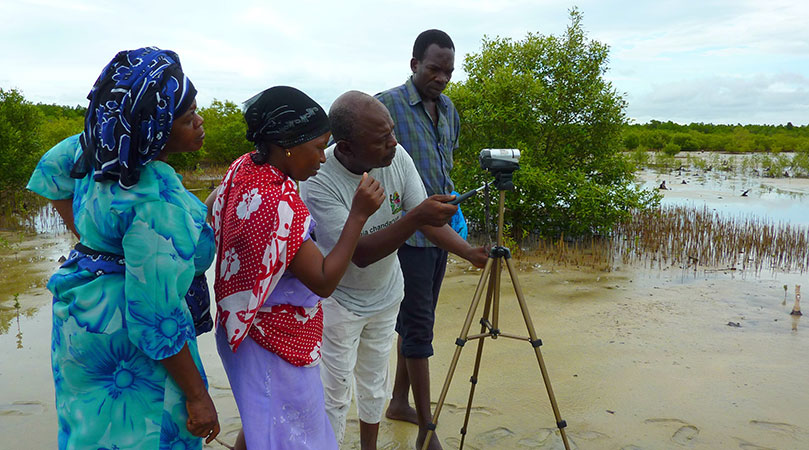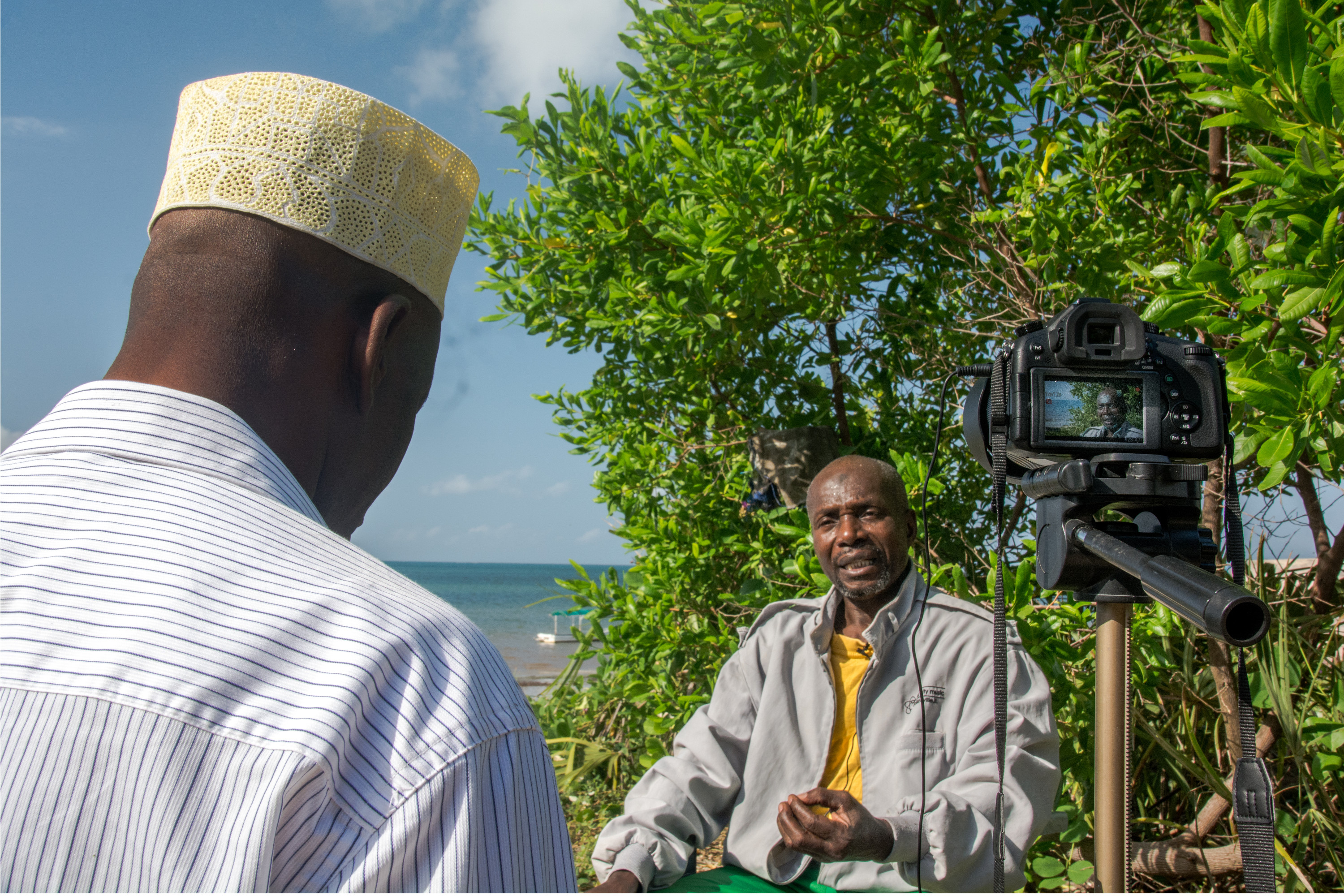


Participatory video (PV) is used to explore octopus management in depth, document success, challenges or traditional knowledge of the octopus fishery; and monitor changes in attitude, knowledge or yield over time. Trainees, many of whom have never handled film-making equipment, are trained in the basic techniques; · Trainees decide the content of the film and work together to design the storyboard; · Trainees decide who and where to interview and all film is reviewed and discussed daily on return; · Editing is time-restricted (2-3 days) and is guided by a ‘paper edit’ carried out with trainees/community members. Having left the film location, subsequent editing is not carried out (apart from subtitling) so the film remains as reviewed by trainees/village communities. The resulting film is a visual output that is used to share lessons and experiences about octopus management and that builds on the oral traditions of local fishing communities in a language and terminology that is accessible to them. The aim is not to produce perfect cinematography but to produce a community product and communicate octopus management issues and options to a wider groups of stakeholders including new villages. This only needs repeating in one or two communities but is useful in the piloting period.
- Availability of technical equipment to make community films and to show them
- Trainees and trainers available for a period of at least 12 days
- Commitment to the whole process from the team of trainees
- Facilitators who are trained in the process and techniques of filming and editing
- Financial resources to cover time-input of participants
- Clear terms of engagement and full consent for filming
- Consent from all participants to allow the organization and the community to use the film freely in its current form
- PV is an extremely powerful tool for getting ‘beneath the skin’ of an issue PV imparts many skills to the community
- PV builds trust and understanding between facilitators and trainees
- If possible, it is preferable for trainees to have long-term access to simple film equipment or smartphones for continued use and recording of lessons
- PV requires a committed and skilled team of facilitators but they do not need to be trained film-makers or photographers